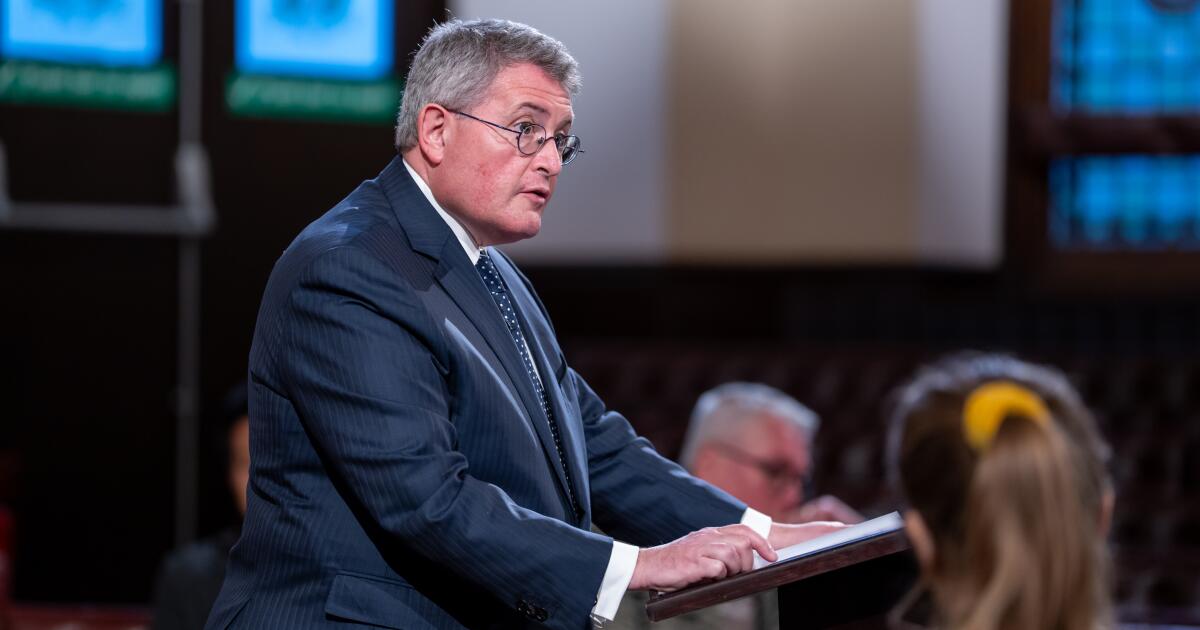Two Supreme Court rulings on Friday that dramatically change the law are profound reminders that the presidential election is enormously important to all of us. Like many of the court's recent actions, these were 6-3 rulings, with the three justices appointed by President Trump in the majority. These decisions – like the overturning of Roe v. Wade and the expansion of gun rights in recent years – simply would not have happened if Hillary Clinton had won the presidency in 2016 and elected three justices.
In other words, these decisions cannot be explained by precedents or interpretive methodologies. They are simply a matter of conservative judges imposing a conservative ideology to arrive at conservative results.
In City of Grants Pass vs. Johnson, the court held that a municipality can make it a crime for people to sleep in public even if there are no adequate shelter beds to accommodate them. Grants Pass, Oregon, has a population of approximately 39,000 and a homeless population of approximately 600. It adopted a series of ordinances aimed at preventing homeless people from sleeping on public property. The Ninth Circuit Court of Appeals declared this unconstitutional and concluded: The “Grants City Pass cannot, pursuant to the Eighth Amendment” – which prohibits cruel and unusual punishment – “enforce its anti-camping ordinances… for the mere act of sleeping outside with rudimentary protection from the elements… when there is nowhere else in the city they can go.”
The 9th Circuit was right on the law: punishing a person for an activity (sleeping) that is essentially beyond his or her control violates the Eighth Amendment. And it was also right on the public policy side. No city is going to solve homelessness by criminally prosecuting the homeless. Imposing fines that homeless people can't afford to pay or jailing them for short periods of time isn't going to get them permanent housing.
Justice Neil M. Gorsuch wrote the opinion reversing the Ninth Circuit. Justice Sonia Sotomayor, in a dissent, explained the cruelty of criminalizing sleeping in public even when there is no other place available: “It is possible to recognize and balance the problems facing local governments, the humanity and dignity of the homeless, and our constitutional principles. Instead, the majority focuses almost exclusively on the needs of local governments and leaves the most vulnerable in our society with an impossible choice: stay awake or be arrested.”
Another Friday decision that clearly represents conservative ideology involved a more technical area of law. In 1984, in Chevron USA vs. Natural Resources Defense Council, the Supreme Court unanimously held that federal courts should defer to federal agencies when interpreting ambiguous federal statutes. This means, for example, that a court must defer to the ruling of the Environmental Protection Agency when that agency establishes rules under the Clean Air Act about the amount of a particular pollutant that can be emitted into the air. “Chevron deference,” as it is known, is based on the idea that Congress cannot legislate with specificity for each issue and intentionally leaves many details to the jurisdiction of the federal agency. Especially on technical issues, the experts are the agencies and not the courts.
But corporations have long opposed Chevron deference. They want to make it easier to challenge agency regulations in court. On Friday, the Supreme Court granted their wish, expressly vacating Chevron's decision. Chief Justice John G. Roberts Jr. wrote on behalf of the court: “The reviewing court — not the agency whose action it reviews — must decide all relevant legal questions and interpret … statutory provisions.”
As it did when it overturned Roe v. Wade, the Roberts court is again failing to give precedent weight by throwing out a 40-year-old decision that has been a cornerstone of administrative law. The decision represents a massive shift of power from federal agencies to the courts. As Justice Elena Kagan said in her dissent, it will produce “large-scale disruption” because Chevron deference has been a crucial part of “modern government, supporting regulatory efforts of all kinds—to name a few, keeping our air and water clean, our food and drugs safe, and our financial markets honest.”
Both of Friday's decisions will have a real impact on the lives of real people. Homeless people now face criminal penalties for incurring the biological need to sleep in public when there is no other place to sleep. Agency rules to protect the public's health and safety are much more likely to be repealed.
The explanation for these rulings is not found anywhere in the law; it can only be explained by who is on the Supreme Court. As the public focuses on the 2024 presidential election, especially in light of Thursday night’s debate, it is crucial to remember that any president’s most lasting legacy is who he puts on the Supreme Court.
Erwin Chemerinksy is a contributor to Opinion and dean of the UC Berkeley School of Law.












